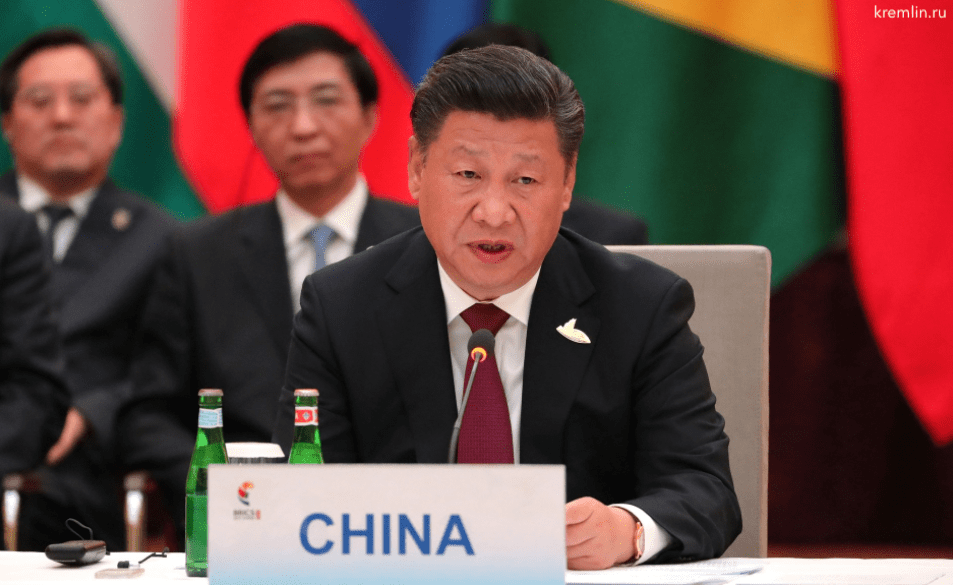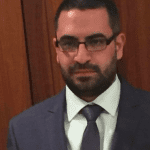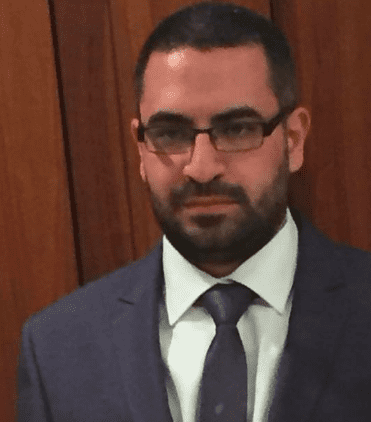
China recently proposed a new four-point plan to solve the Israeli-Palestinian conflict. Is this a major departure along a new track that challenges US hegemony and European passivity? Or is China simply pursuing its own economic interests in the guise of peacemaker?
Historically China portrayed itself as on the side of Palestinians, despite claims of neutrality and non-interventionism. Yet after the end of the Mao era and China’s endorsement of an “open door” policy, up to its participation in the Madrid Peace Conference in 1991, Chinese policy toward Israel and Palestine became more aligned with the international community and the status quo. This has been particularly the case since President Xi Jinping’s rise to power in 2013, with Xi taking an active role in proposing plans for peace.
The more proactive Chinese role has been evident in visits between Xi and Palestinian President Mahmoud Abbas. Abbas visited China in 2013, and again recently met with the Chinese president in Beijing in July 2017. In 2016, Xi toured the Middle East and in a speech to the Arab League stressed China’s dedication to working toward a solution to the Palestinian question.
During Abbas’ most recent visit, Xi proposed a four-point plan. Similar to the plan that the Chinese president put forth in 2013, it advocates for the two-state solution and calls on both parties to pursue negotiations. It acknowledges Israel’s security concerns regarding a Palestinian state, while also calling on Israel to halt its settlement activities in occupied Palestine. The 2017 document also echoes a 2016 government policy paper stating that China supports a Palestinian state based on the pre-1967 borders, with East Jerusalem as its capital.
China’s economic engagement is undermining Palestinian efforts to change the status quo Share on XA new element in the 2017 plan is a focus on the economic. The plan calls for “peace through economic development” and offers to facilitate an economic dialogue between Israel and the Palestinian Authority (PA). This focus serves China’s goal of increasing and securing its projects in the region, evident in its One Belt One Road initiative, which aims to connect China with Europe commercially through maritime and land routes through 68 countries spanning Asia, Africa, and the Middle East.
As Chinese Ambassador to the UN Liu Jieyi stated in July, “China views both Palestine and Israel as important partners in the Belt and Road initiative. China is willing to work under the concept of development for peace in order to promote Palestine and Israel in engaging in mutually beneficial cooperation.” The Chinese state-owned company China National Technical Import and Export Corporation, for instance, is shortlisted to implement the first phase of the Red-Dead water project that includes Israel, the PA, and Jordan.
China’s latest peace initiative thus draws on the same principles and mechanisms of previous international initiatives regarding the conflict, and even bolsters them through its attention to strategies for “economic peace” – currently touted by the US. By engaging economically in joint projects with Palestine and Israel while the political situation remains the same, China is undermining Palestinian efforts to change the status quo and hold Israel accountable for its decades-old regime of settler colonialism and ongoing violations of international law.
Policy recommendations:
- For China to play an effective leadership role in solving the Palestinian question, it must first bypass previous international initiatives, challenge US dominance over the “peace process,” and endorse mechanisms that challenge the status quo.
- China must end its investments in Israeli companies complicit in violations of international law, such as kosher food manufacturer Tnuva and cosmetics company Ahava.
- China and other Asian countries can support Palestine in challenging the Israeli and international agenda. But Palestinians must do more in this regard: They must create influence in those countries by engaging in cultural, academic, and socioeconomic projects.
Until China and Palestine implement such changes, China will not play a leadership role in the conflict, nor will any real shift occur among the international players.
Al-Shabaka Policy Member Zaid Shuaibi is the Arab World and Palestine Coordinator for the Palestinian Campaign for the Academic and Cultural Boycott of Israel (PACBI). He holds an MA in International Politics from the School of Oriental and African Studies (SOAS), where his research focused on China and East Asia relations with Israel and its effect on the region, as well as a BA in Public Administration from Birzeit University. Zaid previously served as the BDS National Committee Outreach Officer in Palestine and the Arab World.











